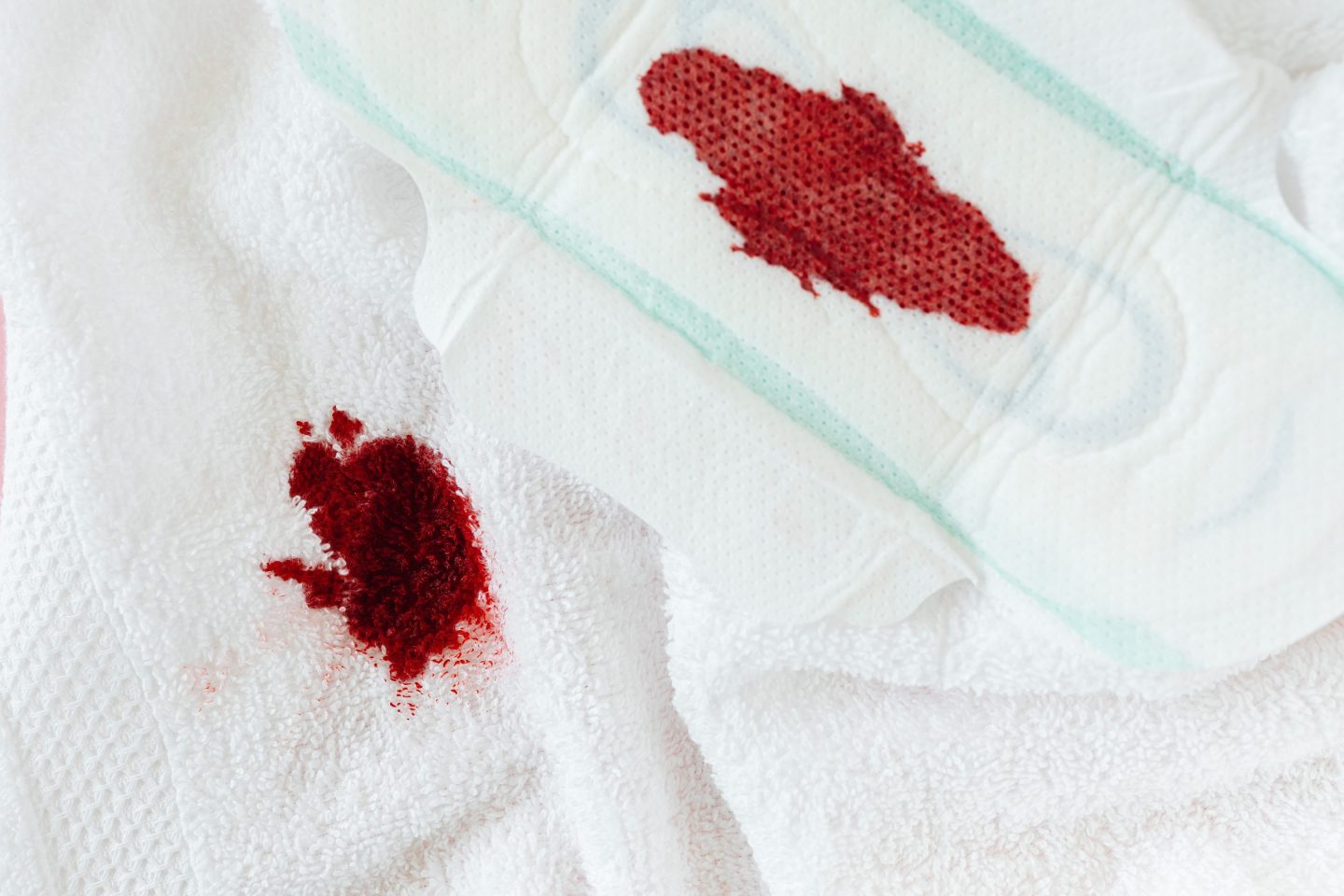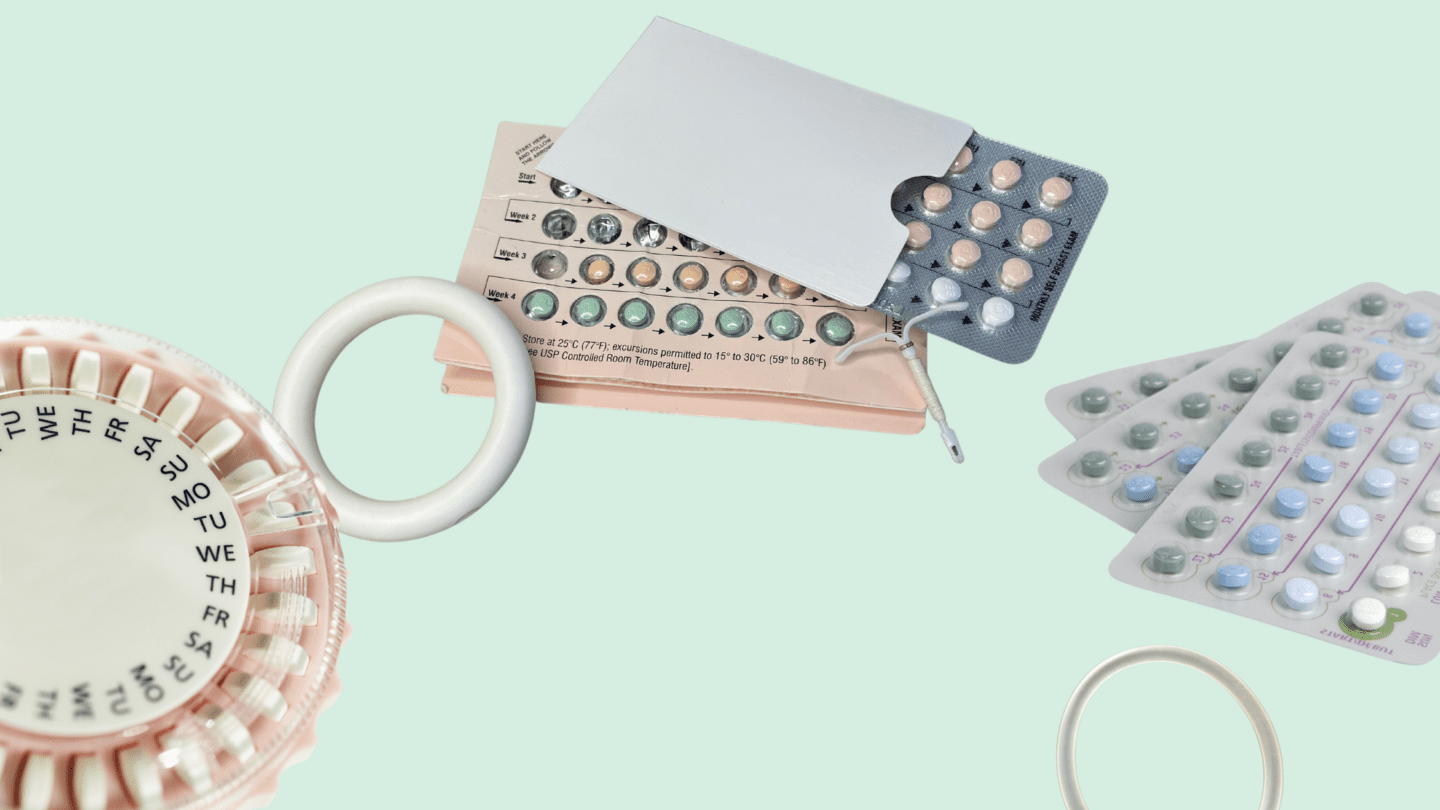Bleeding Mid-Month on Birth Control? Here’s What You Need to Know About Breakthrough Bleeding
When you’re taking like the pill, you may be surprised to find in the middle of your cycle. This is called , but don’t worry, it’s often normal. Even when you’re taking active birth control pills and are in the middle of your pill pack, or are using the ring or implant, some bleeding isn’t necessarily cause for alarm.
But when is something to worry about? Is it preventable? How long does it last? (like periods in general!) is something we don’t talk about enough. But we’ve got answers to your questions!
What is ?
Breakthrough bleeding is or bleeding that occurs while you’re on the pill or other forms of .1 It’s different from the “period” you have during your week while on the pill or when you’ve taken out your vaginal ring for a week — that’s called a “withdrawal bleed.” is unplanned and can be problematic.2
We don’t have a great understanding of what causes .2 Scientists think it has something to do with hormones and blood vessels in the tissues of the ,2 but, like a lot of things involving the , research into this area of health has lagged behind.
Is normal?
Breakthrough bleeding can be perfectly normal, especially in the first three months of using a new hormonal contraceptive, when your body is still adjusting.2 And it’s pretty common: 20% of referrals to gynecologists are for people citing abnormal bleeding.3 Of these, some people only experience the unscheduled bleeding right after sex, which is called postcoital bleeding.3
What should I do if I have ?
Any time you have , doctors recommend you keep taking your contraceptives like normal. For instance, if you’re halfway through your pill pack of combined oral contraceptives, keep taking the active pills — don’t jump ahead to the pills or make any other adjustments.
Some research suggests you can try taking a three-day break from your hormonal contraceptive when starts, in order to let the uterine lining shed, before starting up again.4 But even if this sounds appealing to you, we still recommend checking with your doctor before making any adjustments to your prescriptions, and to ask whether you’ll need additional protection against pregnancy during the break.
Like what you’re reading? Get the latest straight to your inbox 💌
If you’ve been on your current contraceptive for more than three months and is a consistent problem, it’s worth bringing it up with your doctor. They may be able to recommend a different type of contraceptive and, importantly, can rule out any underlying issues. In rare cases, , including postcoital bleeding, can be a sign of , ectopic pregnancy, certain cancers, or an STI like chlamydia.3 Your doctor will want to perform a check-up to make sure there are no issues, and might conduct an ultrasound.3
If you’re thinking about heading to your doctor, we recommend tracking your symptoms so that you can better advocate for yourself, and your doctor can provide the best possible care. For instance, you might record when stops and starts, and how heavy it is, for a few months before making your appointment.
If your appears suddenly and/or is extra heavy, see your doctor as soon as you can.
How long does last?
Breakthrough bleeding can last a few days, or can occur just as a light . But if lasts more than seven days, you should see your doctor.1 If you’ve recently started a new form of hormonal contraceptive, you might get on and off for the first few months, but it tends to go away on its own after that.
If lasts more than seven days, you should see your doctor.
Can I prevent ?
There’s no way to guarantee you’ll never get another breakthrough bleed. But there are some known factors that increase the likelihood of it happening. For instance, if you’ve missed a pill or had any other interruptions to your contraceptive schedule you’ll be more likely to have .1
Some medications or supplements, like certain antibiotics or St. John’s wort, can interfere with contraceptive absorption and mess with your cycle.1 Ditto if you’ve recently had a stomach bug that caused vomiting or diarrhea.1 is also more likely to occur if you’ve skipped your withdrawal bleed (your “period”); it’s also more common in smokers.1
For those taking combined oral contraceptives, some people find that their cycles are more regular if they increase their or try a different type or dose of .2,5 One study also found that the vaginal ring has lower rates of than other hormonal contraceptives.6
So if is giving you grief, talk to your doctor. You may be able to try a different form of that’s a better fit for your body.
-
- Burnett, Tatnai. “Is breakthrough bleeding more common with extended-cycle birth control pills, such as Seasonale and others?” MayoClinic.org. (2021 Dec 24) Last accessed 2022 Feb 15.
- Faculty of Sexual and Reproductive Healthcare, Clinical Effectiveness Unit. “Problematic bleeding with hormonal contraception.” (July 2015)
- Lumsden, Mary Ann, Ailsa Gebbie, and Cathrine Holland. “Managing unscheduled bleeding in non-pregnant premenopausal women.” BMJ 346 (2013).
- Coffee, Andrea L., Patricia J. Sulak, and Thomas J. Kuehl. “Long-term assessment of symptomatology and satisfaction of an extended oral contraceptive regimen.” Contraception 75.6 (2007): 444-449
- Lawrie, Theresa A., et al. “Types of progestogens in combined oral contraception: effectiveness and side‐effects.” Cochrane Database of Systematic Reviews 5 (2011).
- Oddsson, K., et al. “Superior cycle control with a contraceptive vaginal ring compared with an oral contraceptive containing 30 μg ethinylestradiol and 150 μg levonorgestrel: A randomized trial.” Human Reproduction 20.2 (2005): 557-562.









